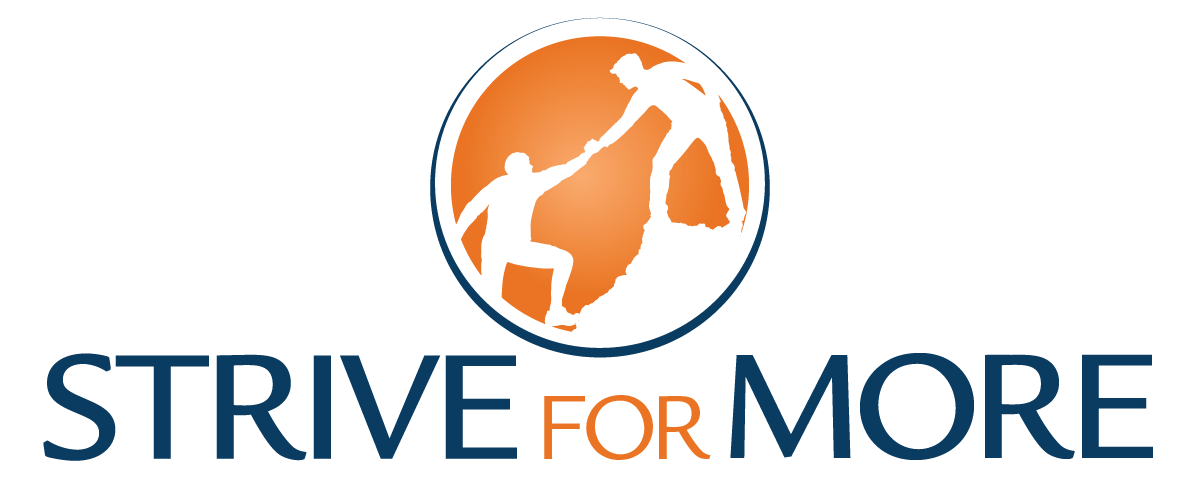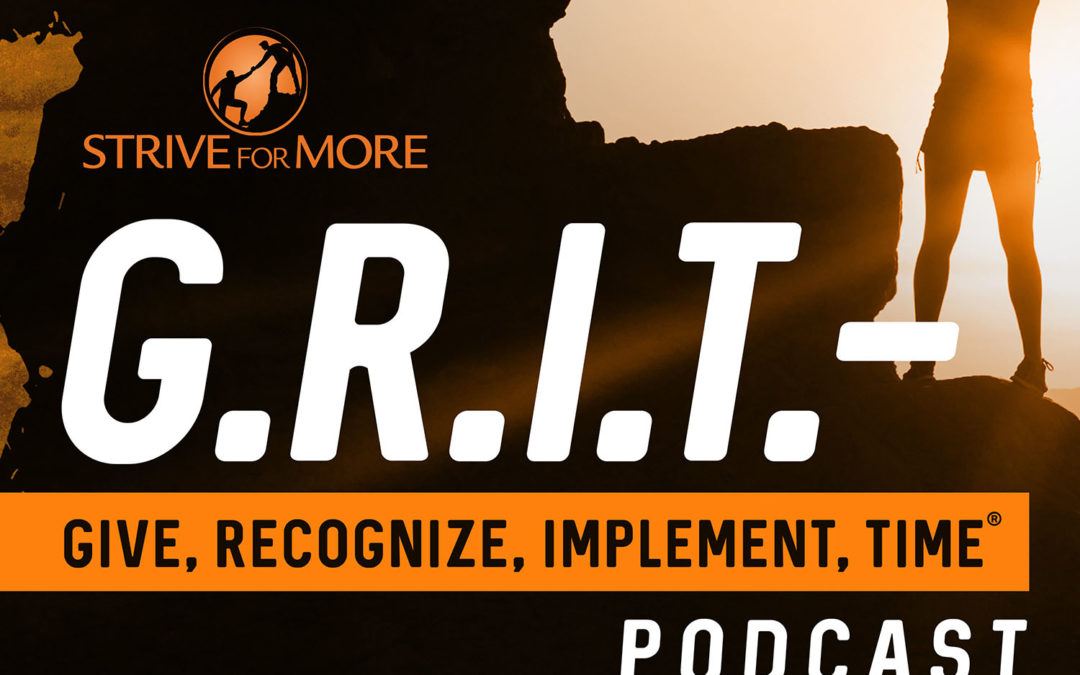About the Episode
How do I find a job I’m passionate about? A question that many of us have asked in our lifetime, more likely than not on many occasions. Numbers, such as 70%, have been thrown around as the percentage of Americans who do not like their job. Are you within this percentage? If you are, you are definitely NOT alone!!!
Finding what we are passionate about is a hard thing to do for many of us; however, there is a WAY to find the answer you are seeking. We CAN know what we are passionate about AND find a job that fulfills that passion within us! It IS possible!!
Knowing it is possible is foundational because it frees us from the “I don’t know trap” we often fall victim to –
“I don’t know! I can’t figure this out!”
“I don’t even know how to get started.”
“This is too much to think about! I don’t know how I’ll ever figure it out!”
And so on and so on. The “I don’t know” trap can paralyze us and prevent us from taking action because we’ve already convinced ourselves it’s not possible.
Join me as I share that it is not only possible, but also there are clearcut ways to determine what we are truly passionate about!
Episode Transcript
Welcome back, everybody, to another episode of the G.R.I.T. – Give, Recognize, Implement, Time® Podcast. I’m your host, Steve Nathenson, CEO and founder of Strive For More. And in continuing our recent arc, if you will, in our episodes, today I want to talk about, what am I truly passionate about doing?
The last episode we did was talking about advancing our career, and advancing our career when there’s no opportunities left at that next level. So with that in mind, we mentioned legacy, and that’s something that’s going to come into play a little bit later on today because knowing the answer to this question can very much impact how do I answer the question of advancing my career? What do I do to set myself up successfully doing it, two episodes ago, and then last episode, what do I do if no positions are left? What you’re truly passionate about can help answer and play a role in both of those. So let’s dive into that in a little bit more detail.
First and foremost, this is actually one of the hardest questions for people to answer. What am I truly passionate about? I don’t know. I don’t know what I want to do. I don’t know what I like to do. I find that’s hard to answer this question because we are groomed to much more easily be able to say what we don’t like than what we do like.
Did you know that there’s actually three times as many negative words in the English language as positive ones? It’s an eye-opening estimate isn’t it? We can often more characterize the quote unquote “negative,” what we don’t want, what we don’t like, and we can get caught in this, I don’t know trap. I don’t know. I don’t know what I want, and I just give up, I stop thinking about it. I don’t think it’s possible to figure it out. I don’t know and it’s too hard to answer and I’m just frustrated. I get stuck in this I don’t know track. You’re not alone in that, if that’s where you are, you’re not alone at all.
One of the tricks we’ve talked about before in this program is to flip that script. You may not know what I’m really passionate about doing but I’d venture to say, as we’ve talked about, it’s easier to characterize the negatives, what I don’t want, what I don’t want. That’s okay. Let’s write that out. Let’s create a list of it. And then we can literally flip it and write their opposites. Then we start figuring out what it is we do want, what we do like, and we can look for themes in there, and we can even look in the entirety of our lives and our past experiences as well, because that often holds the keys. What we find we actually end up doing, what we’re engaged in, what we really enjoy, and we look back upon those experiences, we can start seeing themes that become available to us to help lead and answer this question of what we truly are passionate about.
On top of that, what do we value? What do we need? Prime example. In relationships, we may value equality. We want it to be an equal partnership. That doesn’t have to just be romantic relationships, it can be working relationships as well. We want people to contribute equally. We don’t want one person to feel like they’re just carrying a team, right? Even in sports, we want equal contributions.
Values can also start helping us understand what we’re passionate about. If you value compassion, empathy, those are very people-oriented. Let’s say you value learning. Let’s say you value pushing the boundaries. Perhaps there’s something that is more say, research, tech, development oriented, that you’re really passionate about. Values are another piece to the puzzle that can help break open what we’re really passionate about.
Usually you pick those from a list. Here’s a list, what do you think sounds good to you? What do you value? One of the things that I just mentioned about our experiences, I feel and truly believe is more powerful. When we create a list of what we value, we may be able to do that from 500 words that are values, right, or a list, but what’s more powerful is what do I show myself through my actual real world life experiences that I do actually value? That is often much more confirmatory, much more valuable, and much more powerful because it’s real world experiences that tell us what we do value.
And just like before, when we talked about flipping the script, even in our experiences when it may be easier to say what we don’t value, I don’t like being yelled at, I don’t like being in a cutthroat type of culture, for example, those anti-values as I call them, that can give us insight into what we do value because we can literally flip that. I want a caring type of culture in my organization. I want someone who talks with me, not just berates me. Empathy, compassion, emotional intelligence, let’s see, trust, integrity, honesty. We can look to our path to see what we truly value and as these themes come out, it helps lead us to that answer of what we are truly passionate about, what we’ve been put on this earth to do.
That actually leads me to four questions that I think are really great guiding questions, if you will, to help figure out what are we truly passionate about? The first of which is what do I feel I have been put on this earth to do? The second, what kind of world do I want to live in? The third, tying back to our last episode, what legacy do I want to leave? The fourth question, what impact do I want to create?
Some guidance I want to share with these questions. A lot of times when we sit down and we write or type out, we tend to edit things, edit it as you go, if you will. We tend to edit things as we write, delete, rewrite it, refine it, and a lot of times we can do this while we’re on the computer. So one thing that can help with answering these questions, sitting down with pen and paper, and then creating the intention of, as I write answers to these questions, I’m going to let whatever comes out just flow freely. I’m not going to edit, it’s just going to be pure train of thought, just getting it out on paper. I’m not going to edit it. Once I’m done answering, then I can go back and look back and ask, “Does this make sense? Do I want to edit? Do I want to tweak it?” I can refine what I wrote if I want to really make it maybe clean and crisp, but let’s do that after the fact. Part of this is allowing ourselves to flow freely and to allow it to just come naturally versus refining it.
As we talk about what we’re truly passionate about, it can be hard to answer. As we explore this question, let’s try to free ourselves from this I don’t know trap because the I don’t know trap can keep us from answering this question from keeping us to explore the values, the needs, the real world experiences that we’ve had.
As we go down this exploration to figure out what we’re passionate about, I do truly believe that our past experiences are going to hold the greatest keys to being able to determine this for us, accompanied with these four questions that I’ll repeat here in a second, and knowing what we value and the needs that we have.
Needs are often more deeply seated than values. They elicit a greater emotional response. One of the things that the pandemic did was drive home that clear difference between the values and needs. I need money to be able to live, that’s a constraint we all have in our society. I need my health and my safety to be able to feel comfortable. The actions that people took one way or another, this is not opening up a debate in any way, shows what they truly needed to feel safe, to feel connected, to feel stable, secure. It brought forth a very deep visceral, emotional reaction in a lot of different arenas for people. Those are our truly deep seated needs. Values, values are guiding principles of how we interact with other people, the choices that we make, but they don’t run as deep as needs.
What do we value? What do we need? What do we see from our past experiences? Then what are the answers to these questions? Those questions are, what do I feel I have been put on this earth to do? What kind of world do I want to live in? What legacy do I want to lead? What impact do I want to create?
There’s a lot more we can do in terms of answering this question, but I wanted to share some common guiding principles for you that can help answer what am I truly passionate about doing? When we know the answer to this question, it helps us make decisions regarding our career, the kind of company I want to work, for the industry I want to be in, the position I want to hold. Knowing what we’re passionate about can help us make those decisions. I hope you enjoy today and remember until the next, time be the movement in your life.
Listen to all of our episodes here.
Learn More About How We Help You Harness Your Resilience Through G.R.I.T. – Give, Recognize, Implement, Time®& Find More Actions You Can Take Right NOW!
To learn more about our signature coaching approach which DOES help people all over the world stay focused, overcome, and achieve, please click here.
Want to Assess Your G.R.I.T. – Give, Recognize, Implement, Time® & get a tangible gauge of key human characteristics that WILL make you successful?
Take our G.R.I.T. – Give, Recognize, Implement, Time assessment now and find out!

